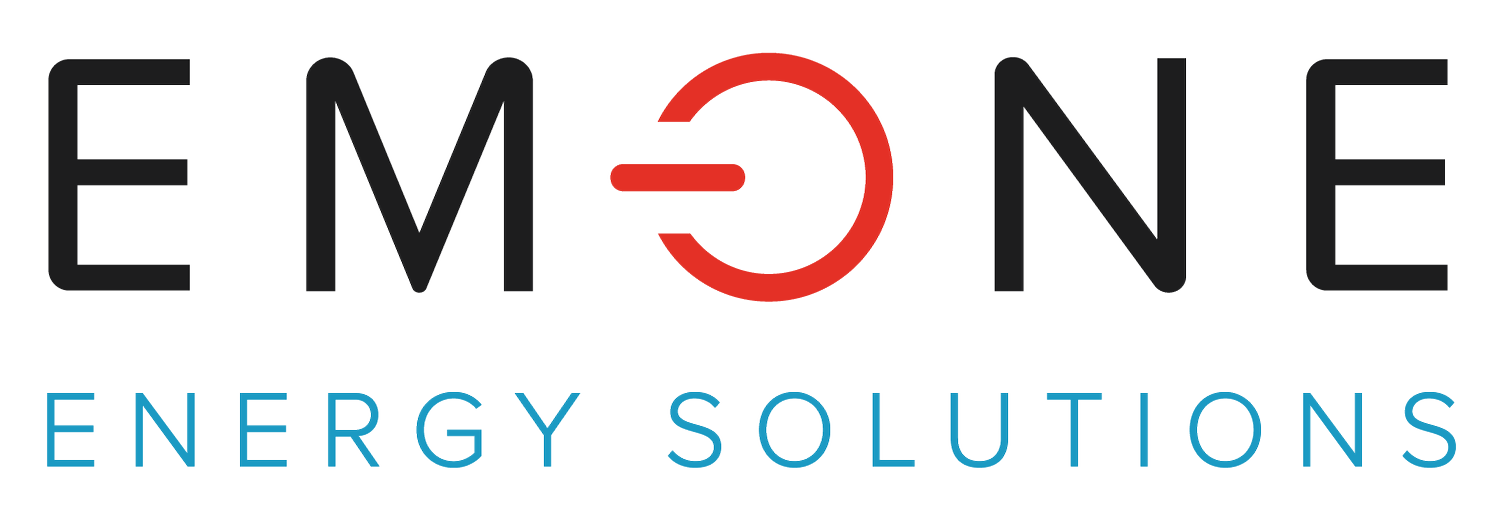EM-ONE microgrids power healthcare across Nigeria
April 2019
Aerial view of a 105 KW PV and 440 KWh storage microgrid in Adamawa
Reliable electricity can mean life or death for patients in sub-Saharan Africa. Estimates indicate that across the continent, 26% of healthcare facilities lack access to electricity and 28% have access to reliable electricity. This means that basic health services − vaccinations, maternal and child wellness, HIV/AIDS and TB treatments, COVID-19 mitigation, and digital record keeping − are limited or unavailable. Life-saving interventions are often impossible.
EM-ONE supports donors and governments across West Africa in planning and delivering healthcare electrification programmes. Since early 2015, we have worked at the nexus of energy and health - designing, managing, and building solar microgrid solutions that provide reliable, affordable, and modern power at scale to power health facilities.
Lagos Solar Project (2015)
The Lagos Solar Project was a jointly funded effort between the Lagos State Government, Lagos State Electricity Board (LSEB) and the UK’s Department for International Development (DFID). The intervention aimed to electrify health and education facilities at scale across the state for improved social outcomes.
EM-ONE was the engineering, design, and project management partner for the program. We designed and managed the delivery of 218 containerized solar microgrids that powered 11 primary health clinics and 172 schools across Lagos State. The total capacity of the microgrids delivered was 5 MWp PV with 40 MWh storage.
Kaduna Solar Phase 1 (2016)
Kaduna Solar was a donor-funded programme led by Crown Agents with funding from DFID. The programme focused on improving healthcare through the provision of uninterrupted, stable power. The first phase of this project was realized through the provision of containerized solar microgrid systems at 34 primary health clinics across the state.
EM-ONE was the engineering, design, and delivery partner for the program. We completed the system design, engineering, construction, and installation for the project. Our scope included completing an electrical retrofit and upgrade to optimize energy use at the off-taker clinics. The combined installed PV capacity was 1.6 MWp and 14 MWh energy storage.
Aerial view of a 48 KW PV and 63 KWh storage microgrid in Kaduna
Borno and Adamawa Solar (2017 - 2019)
In Northeast Nigeria, 1.9 million people have been internally displaced due to the ongoing terrorist insurgency from Boko Haram and ISWAP. Borno and Adamawa have suffered from severe deterioration in their social infrastructure, which has diminished the efficacy of public services and exacerbated an ongoing humanitarian crisis.
To rebuild critical social infrastructure in the region, the UK’s Department for International Development launched the Solar Nigeria Programme (SNP). This intervention aimed to provide reliable and sustainable power to high-impact general hospitals and clinics in regions affected by the ongoing conflict. The programme was managed by Adam Smith International (Phase 1) and subsequently by AECOM’s Delivering Procurement Services for Aid (DPSA).
EM-ONE was the turnkey delivery partner for Borno Solar Phase 1 – 3 and Adamawa Solar. We completed the engineering, procurement, and construction of 20 solar-plus storage microgrids powering general hospitals across the two states. The combined capacity of the projects delivered was 2 MWp PV and 8.6 MWh energy storage.
Aerial view of a 206 KWp PV and 1.5 MWh storage microgrid in Borno
The microgrids were designed with industry-leading Tesla battery Powerpacks, microgrid controllers, and Schneider Electric electrical components as well as Canadian Solar PV modules.
Aerial view of a 211 KWp PV and 880 MWh storage microgrid in Adamawa
Kaduna Solar Phase 2 and Kano Solar (2019)
Building on the success of Borno and Adamawa Solar, and with additional funding from the European Commission, Solar Nigeria Programme was expanded to Kaduna and Kano States. The expanded intervention aimed to expand the provision of uninterrupted, renewable power to primary health clinics and schools across the two states through containerized solar microgrids.
EM-ONE was the turnkey delivery partner for the portfolio of projects. We completed the engineering, procurement, and construction of 25 solar plus storage microgrids. The combined capacity of the projects delivered was 1.5 MWp PV and 2.4 MWh energy storage.
View of a containerized modular microgrid deployed in Kaduna
The containerized microgrid solution delivered, “the EM-BOX,” provides 24/7 uninterrupted power to these facilities’ critical loads including refrigeration, cold chain storage, emergency lighting, operating room lighting, X-ray machines and water pumping.
The EM-BOX had a modular and scalable design, so facilities could add generation and storage capacity as demand grows. They were designed to be robust and rugged to withstand the African context and were equipped with tier-1 products to reduce long-term operation and maintenance costs and optimize the systems’ performance over their lifetime.
Aerial view of a 50 KWp PV and 65 KWh storage microgrid in Kaduna






